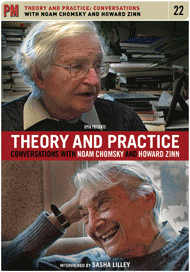Review: Banished and the Elusive Promise of Reparations
Last night, some of us went and saw Banished, the new documentary by Marco Williams. It's about the racial violence in the early twentieth century of racist white communities lynching and expelling blacks from their land. The subtitle of the film, How Whites Drove Blacks Out of Town in America, doesn't do it justice. While it makes the slam-dunk case that this forced exodus was truly a matter of racial cleansing, Banished is really a look at the issues surrounding reparations today.
Too often people say "really good" when they mean "great," and Banished is not a great film. It is, however, really good, and Williams's approach is solid, patient, and interesting to the end. He does a really good job of examining the interplay between white supremacy and identity. With a sure hand, and an almost understated sense of humor, Williams's piece is probably the best piece I've seen on reparations yet.
I'm not sure if he was actively complicit or simply an observer, but he manages to crack the shallow recital of apology and reveal it for the trite performance it really is. (I don't want to explain how he structures his argument, because people should go see the movie.) It's not a great film: it doesn't innovate a visual style or fully utilize all of the possibilities inherent in the medium. But what it lacks in visual ambition, it makes up for in a smart and solid examination of what reparations could mean. You should see it.
Recently, we also saw Manda Bala/ Send a Bullet. It's the kind of documentary that crackles the nerve endings and makes you sit up in your seat. Minutes in, we turned to each other and said "Oh, they have our attention." The first-time director, Jason Kohn, manages to blend Errol Morris with (I can't believe I'm typing this in a positive way) Howard Stern for an intense study of the various forces of corruption, crime, and their intersections in modern day Brazil. It fizzes out in its third act, failing to tie it together as neat as it wants to, but if every film failed this well, I don't think many of us would mind. In hindsight, with the sheer force of its eye, ear, and direction, we shouldn't be surprised that Kohn can't maintain it to fruition, but this is the most promising debut we've seen in a while. If Williams makes a journeyman contribution, Kohn's Send a Bullet comes off like like the top draft pick's debut loss. So what? He's still the one to watch.
To read at work? Chapter One of Oshinsky's Worse Than Slavery
Too often people say "really good" when they mean "great," and Banished is not a great film. It is, however, really good, and Williams's approach is solid, patient, and interesting to the end. He does a really good job of examining the interplay between white supremacy and identity. With a sure hand, and an almost understated sense of humor, Williams's piece is probably the best piece I've seen on reparations yet.
I'm not sure if he was actively complicit or simply an observer, but he manages to crack the shallow recital of apology and reveal it for the trite performance it really is. (I don't want to explain how he structures his argument, because people should go see the movie.) It's not a great film: it doesn't innovate a visual style or fully utilize all of the possibilities inherent in the medium. But what it lacks in visual ambition, it makes up for in a smart and solid examination of what reparations could mean. You should see it.
Recently, we also saw Manda Bala/ Send a Bullet. It's the kind of documentary that crackles the nerve endings and makes you sit up in your seat. Minutes in, we turned to each other and said "Oh, they have our attention." The first-time director, Jason Kohn, manages to blend Errol Morris with (I can't believe I'm typing this in a positive way) Howard Stern for an intense study of the various forces of corruption, crime, and their intersections in modern day Brazil. It fizzes out in its third act, failing to tie it together as neat as it wants to, but if every film failed this well, I don't think many of us would mind. In hindsight, with the sheer force of its eye, ear, and direction, we shouldn't be surprised that Kohn can't maintain it to fruition, but this is the most promising debut we've seen in a while. If Williams makes a journeyman contribution, Kohn's Send a Bullet comes off like like the top draft pick's debut loss. So what? He's still the one to watch.
To read at work? Chapter One of Oshinsky's Worse Than Slavery
Labels: documentary





0 Comments:
Post a Comment
<< Home